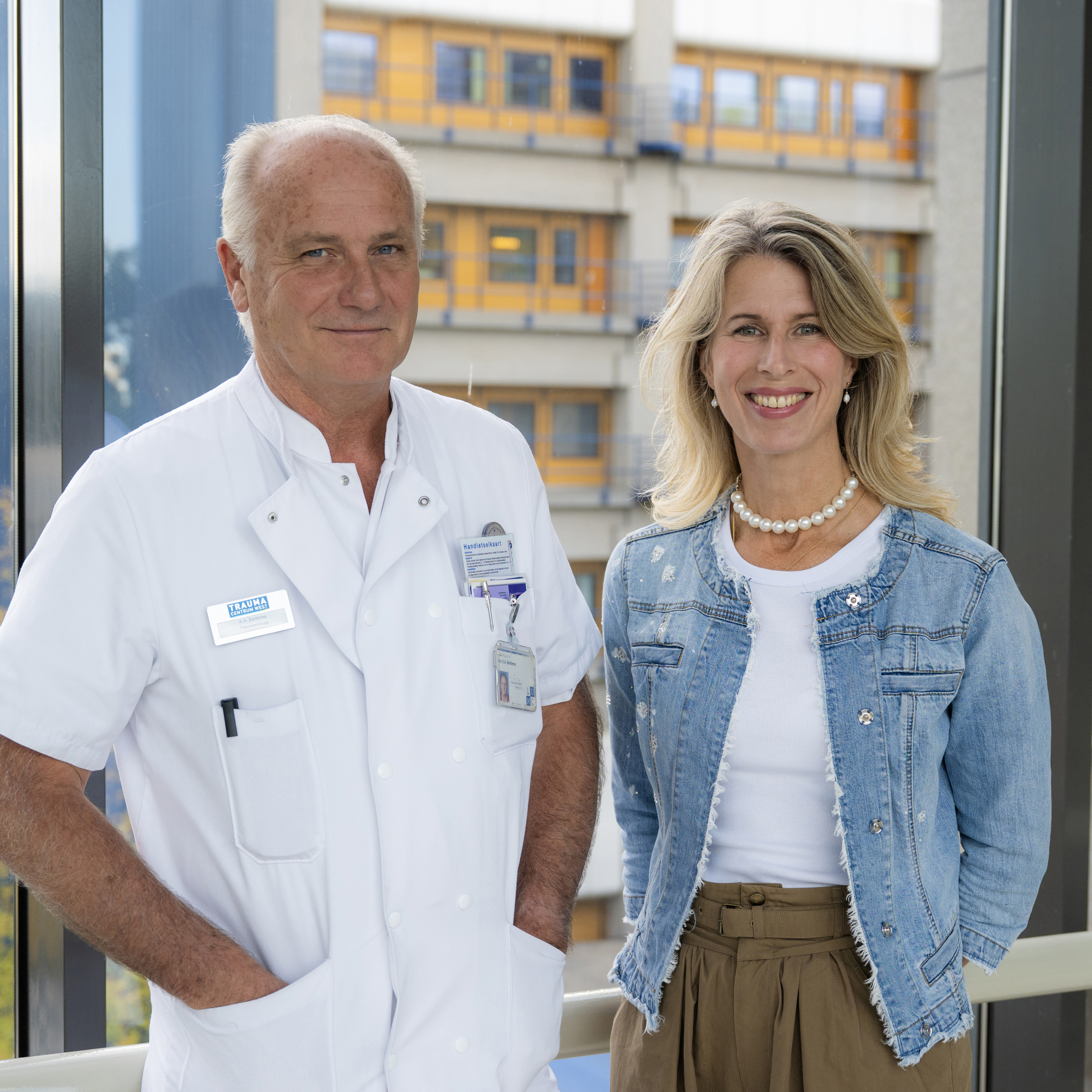Kees Bartlema & Margriet Groot-Warmerdam
&width=400&height=400)
“You don’t just gain medical knowledge during an internship abroad; you learn how to open yourself up to different cultures and perspectives. That makes you a better doctor and a better person.”
How do you experience diversity and inclusion in your workplace?
Kees: “Medicine is inherently diverse. Every patient is different, with their own background and expectations. In the Netherlands, we see patients from every possible cultural background, and that requires constant adaptation.
What makes the internships in Suriname unique is that you have to step even more out of your Dutch frame of reference. You enter a healthcare system with different customs, different ethics, and sometimes limited resources. Students learn to think outside the box. For example: if there’s no dressing available, they find creative alternatives. That kind of experience shapes you as a doctor.”
Margriet: “Diversity is not only visible in patients but also among the students we select. We don’t differentiate based on gender, origin, or background. We purely look at quality and suitability. What we see is that the group of students who go to Suriname automatically ends up being very diverse. Quality is inclusive.”
How does diversity and inclusion play a role in your daily work?
Kees: “For me, it means not judging but observing. An example: a child with a Chinese mother was considered ‘too small’ in the Netherlands, because it fell below the growth curve. But given the mother’s background, that was completely normal.
That shows how important context is. In Suriname, for instance, a bad-news conversation happens in a totally different way than we are used to here. Students learn to dive into that context and approach situations with an open mind. That is what ultimately makes you a better doctor.”
Margriet: “We guide students intensively. Every two weeks, we ask them for a short evaluation: what are you learning, what challenges do you face? This way, we keep a close eye on their progress. Sometimes we also get feedback from colleagues in Suriname. We share that with the student. It works well: students continue to grow but also know there is a safety net.”
What does an ideal inclusive workplace look like to you?
Kees: “It’s a place where students and doctors from different backgrounds work together and learn from each other. In Suriname, that’s very tangible: you have to make an effort to become part of the team. You introduce yourself properly, use titles, and make an effort to remember names.
An internship in Suriname only works if you’re willing to let go of your own way of working and immerse yourself in the culture and history. You’re a guest there – that’s something you must never forget.”
Margriet: “For me, an inclusive workplace means students know they can be themselves, while also being open to others. Whether it’s a patient, a colleague, or a new culture – ultimately it’s about mutual respect and genuine interest.”
Which elements of our work culture make you feel proud or happy right now?
Kees: “That we can offer students this opportunity. Every year around July 1st, during Keti Koti, we organize a Suriname Day. Former interns return, we connect live with Paramaribo, and experiences are shared. It’s wonderful to see how much students have grown – both as doctors and as people.”
Margriet: “I’m proud that after their internship, students share that it didn’t just enrich them medically, but also personally. They learn to cope with uncertainty, discover how to be creative with limited resources, and realize the world is much bigger than the walls of Dutch hospitals. That’s incredibly valuable.”
“The biggest risks in healthcare are communication failures – not medical decisions. By staying open, you can gain so much.”
Would you like to do an internship in Suriname?
Are you a medical student looking to gain experience in a new culture and face unique medical challenges? The elective internship in Suriname offers you:
- Intensive guidance by experienced doctors and quality staff.
- Participation in all phases of patient care in a tropical hospital.
- Personal growth and development – medically and culturally.
- A unique opportunity to work in a multicultural professional team.
Interested? Apply for the selection interview and discover if you are ready for this challenging adventure.